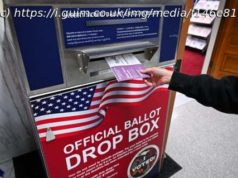How do people make sense of confusing events in the present? By casting about for precedents—metaphors—from the past.
How do people make sense of confusing events in the present? By casting about for precedents—metaphors—from the past.
North Korean dictator Kim Jong-un’s behavior this year has been one of those profoundly confusing developments. After ascending the throne in 2011, the dauphin’s behavior was wholly brutal—but relatively predictably so. He consolidated his power by purging and even murdering his rivals. He continued developing his nuclear weapons and missile programs. And his regime was bellicose and threatened, just about daily, to rain destruction on Japan and the United States. Depressing behavior, yes, but simply a continuation of the established pattern that his father and grandfather had set. I suppose you could say there was a grim comfort in that.
And that’s why this year’s volte face has been so unsettling. For whatever reason—and people I’ve spoken to in Asian governments really do credit the Trump administration’s “maximum pressure” campaign—Kim is acting, well, differently. The hostile rhetoric has been curtailed. The nuclear tests have stopped. And Kim has even reportedly suggested a willingness to abandon his nuclear weapons program. The contours of a deal—economic help in exchange for the abandonment of nuclear weapons—that was heretofore unthinkable can now be seen, if only in faint outline. Secretary of State Mike Pompeo made the point clearly when he suggested last month that, « If North Korea takes bold action to quickly denuclearize, the United States is prepared to work with North Korea to achieve prosperity on the par with our South Korean friends. »
The search for historical precedent, therefore, leads us to North Korea’s only treaty ally: China. The question is whether Kim Jong-un now hopes to follow the path that was blazed by Deng Xiaoping, and attempt some sort of economic opening of his desperately poor country.
Kim certainly agrees with Deng on one thing: “To get rich is glorious,” as the Chinese leader once (supposedly) said. Kim has expensive tastes, inherited from his father. He likes fast cars and expensive liquor. But does he agree with Deng that the way to maintain Communist party rule is to, paradoxically, liberalize his economy? Will he begin North Korea’s version of what Deng called an “opening up?” (Deng, of course, did not give up China’s nuclear weapons—but that was never demanded of him as a precondition for Western investment.)
For years, North Korean analysts have said believed that no opening up was forthcoming. The historian Andrei Lankov, in 2014’s The Real North Korea identified a central problem: Yes, the Kim regime has permitted small changes, like the spread of markets and even some privately-owned entitles, such as coal mines. But the North Korean leadership can not risk a Chinese-style opening up of their country, Lankov argued, because doing so can only bring about their destruction. Given the unremitting cruelty with which they’ve treated their people, the Kim family and its cronies would almost certainly reach an end like the Ceaușescus’. They have refused, therefore, to give the population the rope with which they would later be hung.
But maybe that analysis was wrong. One Asian government official I’ve spoken to say yes, he really does think Kim wants to be North Korea’s Deng Xiaoping. Though I would argue it might actually be the leadership style of the current Chinese leader, Xi Jinping, that is inspiring Kim’s shift. Xi’s rule, which marries political repression with economic quasi-liberalism in what was supposedly an impossible contradiction, shows to Kim he can have his cake and eat it too. To be rich is glorious—and so is to preside over a brutal dictatorship.
By the way, it was a visit by Deng Xiapoing in 1978 to Singapore that supposedly got him interested in opening up the Chinese economy. It remains to be seen whether Kim’s visit to the prosperous city-state this week will have the same effect.






